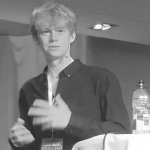Fighting Authoritarianism with Erlang, Blockchains and Blockweaves
Q: What do all the following moments in history have in common?
- Moscow, 1917.
- Berlin, 1932.
- Beijing, 1966.
- Raqqa, 2013.
A: Authoritarian regimes were diligently destroying our record of the past.
“He who controls the past controls the future. He who controls the present controls the past.” Orwell, Nineteen Eighty-Four
In 2009, someone acting under the pseudonym Satoshi Nakamoto, released a formula for achieving computational consensus on information in an entirely decentralised manner, beyond the controls or whims of any one party. This system, originally designed to allow financial transactions, has applications far beyond digital money. Satoshi consensus has potential uses in almost every area of society, it is a recipe for decentralised control of almost anything. While the recent hype and buzz around the blockchain space has made many people millionaires and some billionaires, often this core point is missed.
Sam Williams will talk about this at Code BEAM SF 2018 and will present a system that allows the mechanism of consensus without authority to be scaled to store data of arbitrary sizes. Furthermore, Sam and his team are already using this system, it is built in Erlang with a new blockweave and Proof of Access algorithms, creating a permanent and immutable archive of human history. In short, Erlang here is being used to make digital ‘book burning’ impossible, by democratising the storage of history.
Why Erlang?
Using Erlang’s process-centric approach enabled Sam and his team to quickly design and implement the Arweave network. A component of their approach was to build an extensive testing framework utilising Erlang’s message passing and lightweight threading model, simulating networks under realistic conditions on a vast scale. This has allowed them to emulate the behaviours of complex decentralised algorithms and foresee adverse emergent behaviours long before launch. With these tools, they have been able to run simulations of networks on a vast scale and identify one-in-a-million errors in a safe environment. They are now ready to tell the Code BEAM SF community all about it.
If you’d like to hear more about blockchains, blockweaves, and how Erlang can be used to simulate massive decentralised networks, then you must check out Sam's talk 'Fighting Authoritarianism with Blockchain and Blockweaves' at Code BEAM SF 2018.

Sam Williams
Sam is the CEO of the Archain project, a system of permanent information storage. Sam has been building distributed systems with Erlang, from operating systems to web applications, for around 10 years. He is also a PhD candidate at the University of Kent. When not hacking Erlang, Sam can be found climbing mountains and pondering geopolitics!